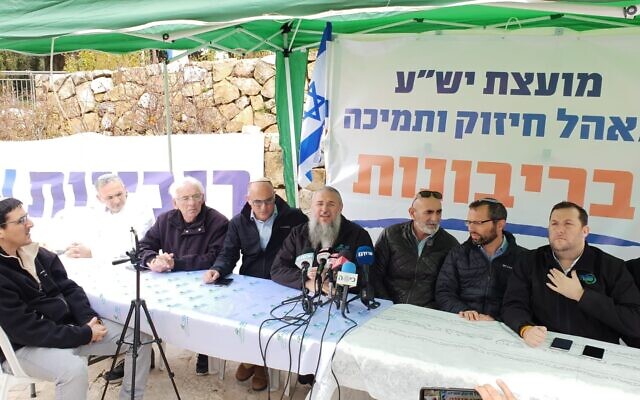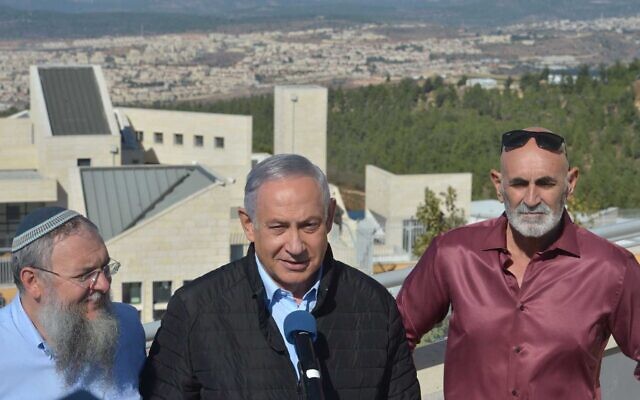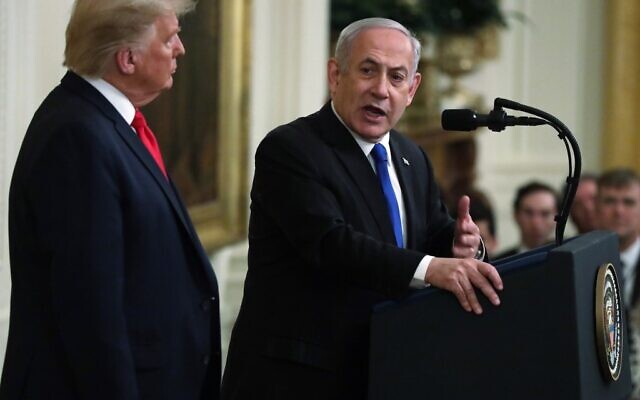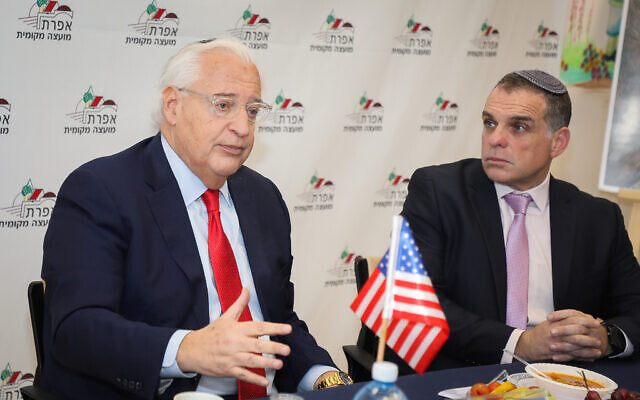Organization of West Bank mayors expresses total opposition to Palestinian state, even at cost of US backed annexation, but some members publish separate statement backing plan

In what is effectively a gesture against the Trump peace plan, the Yesha Council umbrella group of settlement mayors has adopted a series of principles that include supporting West Bank annexation while vehemently opposing the establishment of any Palestinian state.
The Trump plan, which was released in January, envisions Israel annexing roughly 30 percent of the West Bank and provides a list of conditions for the establishment of a Palestinian state on the remaining land beyond the Green Line.
The Yesha Council convened for the vote last week in the Ma’ale Adumim city settlement, but publicized its decision Wednesday.
A spokesman for the Yesha Council told The Times of Israel that 15 of the 24 mayors participated in the session and that the measure passed by a large majority. He declined to provide the exact numbers of the vote, saying the body never reveals such results.

The resolution passed included six tenets:
1. The Yesha Council welcomes the positive change in the US policy toward [West Bank] settlement.
2. The Yesha Council calls on the new government and the Knesset to act to apply sovereignty in Judea, Samaria and the Jordan Valley as soon as possible.
3. Applying sovereignty is the responsibility of the State of Israel only (i.e., not something that requires American approval).
4. The Yesha Council opposes any recognition or agreement of any kind to the establishment of a Palestinian state.
5. The Yesha Council will not agree to a construction freeze in [settlements] or restrictions on construction in any locality.
6. The Yesha Council does not accept any map that creates isolated enclaves that will hamper their future development.

In a statement reflecting on the adopted resolution, Yesha Council chairman David Elhayani said, “For years, the Yesha Council has been working to apply sovereignty [in the West Bank], and we’ve gone from a situation in which almost no one talked about the subject or was aware of it to the unprecedented situation where the prime minister and the US president discuss an agreement that includes sovereignty.
“However, we will not agree to the establishment of a Palestinian state in the heart of the Land of Israel.
“If the result of the [Trump] agreement is to establish a terror state in Judea and Samaria (the West Bank), include the creation of isolated enclaves and a freeze on construction, we are ready to give up sovereignty, despite all the hard work and resources we have invested in the issue in recent years.”
The Trump plan allows Israel to continue building within the borders of existing settlements, while barring construction in the areas that are earmarked for a possible Palestinian state.
Hours after the Yesha Council published the list of six principles that it approved last week, a group of eight settler leaders published their own statement calling for supporting the Trump plan.
The statement organized by Efrat Mayor Oded Revivi, who also serves as Yesha’s foreign envoy, calls the Trump deal a “defining test” for settler leadership akin to the one placed before the pre-state Zionist Congress when it was forced to decide whether or not to accept the UN Partition Plan in Mandatory Palestine.

“The essential difference is not only in the amount of real estate under discussion for a proposed Jewish homeland, but in the approach of our leadership,” the statement reads.
“Today our leaders are hemming and hawing. In the past they took to the streets — not to protest — but to dance as they rejoiced over the recognition and legitimacy offered by the international community for the formation of a Jewish state.
“Now it is our turn. The leaders of the Settlement Movement in Judea and Samaria must be appreciative of the recognition and legitimacy being offered by the most powerful country on earth. We must be grateful and rejoice in The Deal of the Century.”
In addition to Revivi, the letter was signed by Ariel Mayor Eli Shaviro, Megilot Regional Council chairman Aryeh Cohen, Oranit Local Council chairman Nir Bartal, Alfei Menashe Local Council chairman Shai Rosenzweig, Elkana Local Council chairman Assaf Mitzner, and Har Adar Local Council chairman Haim Mendel Shaked.
As reported by The Times of Israel
